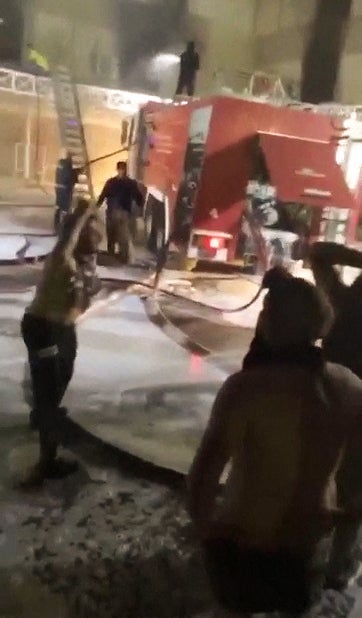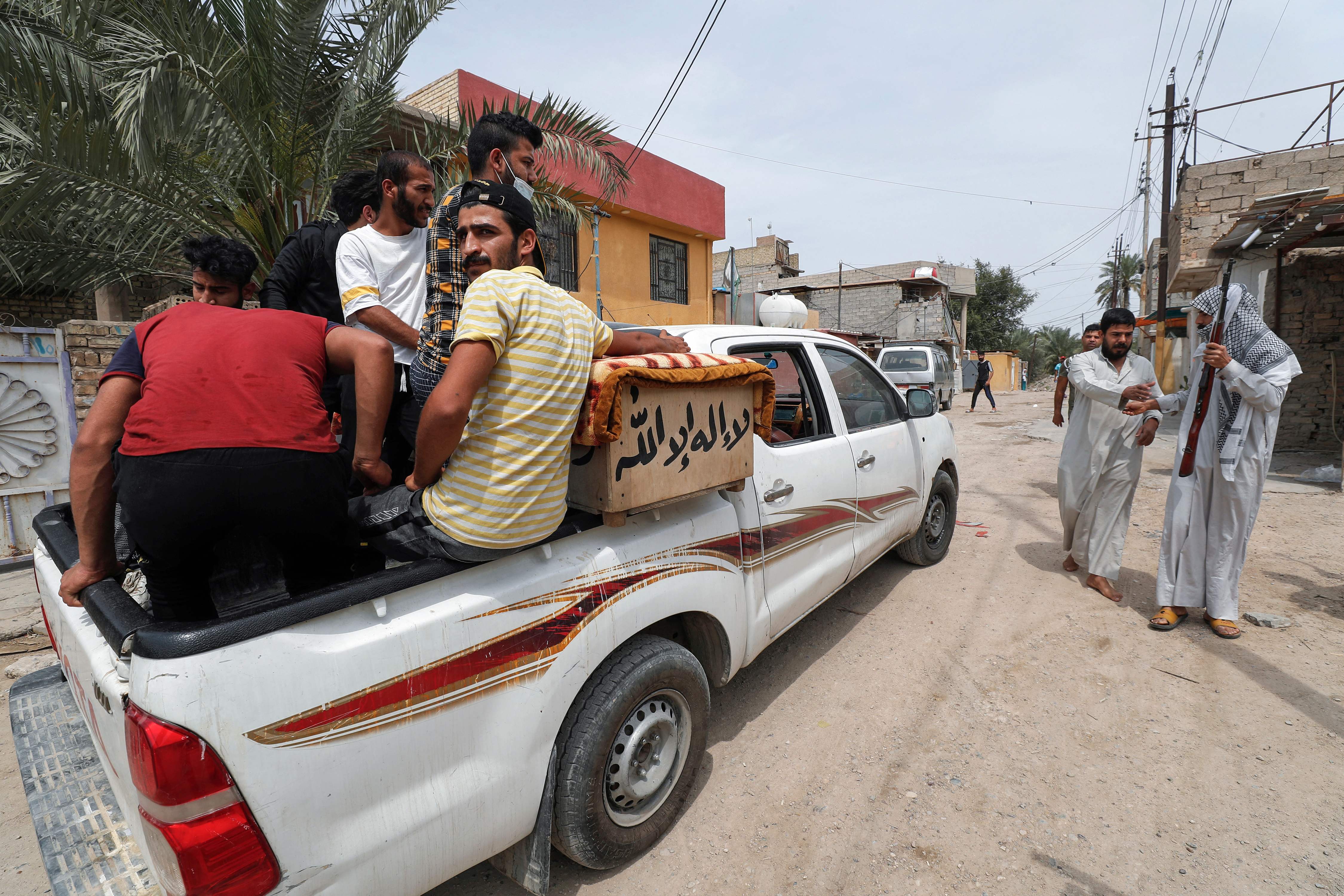Your support helps us to tell the story
From reproductive rights to climate change to Big Tech, The Independent is on the ground when the story is developing. Whether it's investigating the financials of Elon Musk's pro-Trump PAC or producing our latest documentary, 'The A Word', which shines a light on the American women fighting for reproductive rights, we know how important it is to parse out the facts from the messaging.
At such a critical moment in US history, we need reporters on the ground. Your donation allows us to keep sending journalists to speak to both sides of the story.
The Independent is trusted by Americans across the entire political spectrum. And unlike many other quality news outlets, we choose not to lock Americans out of our reporting and analysis with paywalls. We believe quality journalism should be available to everyone, paid for by those who can afford it.
Your support makes all the difference.The doctor was trying to administer CPR to a dying patient in the Baghdad coronavirus ward when he heard the first oxygen cylinder explode and the deadly hiss of escaping gas that followed.
Knowing that there were more than a dozen more canisters and that the hospital’s central oxygen storage system could go up in flames, Dr Kamal Al-Rubaye screamed for everyone to evacuate.
It was Saturday night in Ibn Khatib hospital where the Covid-19 wings were already overflowing. That particular ward – the Respiratory Care Unit – contained 30 seriously ill but conscious patients and dozens of their relatives, many of whom had all but moved into the hospital to tend to their loved ones.
When the cylinder exploded, most of the visitors could not detach the patients from the life-giving ventilators in time or could bring themselves to leave their loved ones behind.
“Most of the relatives wouldn’t leave and some patients could not be moved as they would only live minutes without oxygen,” says Dr al-Rubaye, 27, the doctor on duty, now recalling the horrific moment he was forced to leave people behind to usher others to safety.
He adds: “One by one the oxygen canisters started to explode. Everything was up in flames in a matter of minutes.
“Everyone was screaming and everything was burning. I just kept thinking I can’t do anything. I can’t do anything.”
At least 82 people were killed and 110 people injured in the massive fire which raged through the government hospital. Officials believe it was caused by improperly and unsafely stored oxygen cylinders and that the death toll may rise as families continue to search for missing relatives.
Iraq’s prime minister, Mustafa al-Kadhimi, blamed widespread negligence on the part of health officials and ordered an investigation into the incident. He set a three-day period of mourning. Following a special cabinet meeting to discuss the blaze on Sunday, the government suspended key officials, including the health minister Hasan al-Tamimi and the governor of Baghdad province. Other officials, including the hospital director, were dismissed from their posts.

Among the dead were at least 28 patients on ventilators, according to Ali al-Bayati, a spokesman for Iraq’s independent and semi-official Human Rights Commission.
Photos of the dead in the mortuary showed distorted bodies burned beyond recognition lying under blankets. Videos show the blackened shell of the ward rooms.
The fire happened as Iraq grappled with a severe second wave of the pandemic. The numbers have hit daily records of about 8,000 new cases a day on average, the highest level since the start. At least 15,200 people have died of coronavirus among at least 100,000 confirmed cases.
At around 10pm Saturday night flames, described by one witness as “volcanoes of fire”, swept through the ward which tends exclusively to Covid-19 patients with severe symptoms. Officials said the blaze also injured 110 people and was probably set off by an exploding oxygen cylinder. Hospitals sources told The Independent there was no fire alarm in the ward nor a central fire extinguishing system such as sprinklers to help douse the flames.
Barely able to sleep, and haunted by memories of screaming, burning patients, Dr al-Rubaye says medics have long feared a fire might break out because of the terrible conditions.
He told The Independent: “It’s chaos in the wards… it’s overcrowded with relatives… oxygen bottles which visitors aren’t trained to use but often handle. Some relatives even said people had brought hot plates into the rooms for heating up food. Oxygen bottles are like bombs waiting to explode. There are tens of them in the ward. We were waiting for the disaster to happen.”
Another doctor who was not on duty that night but rushed in to help ferry people to safety said that like many government hospitals, there was a woeful lack of safety precautions and safety measures.
He spoke on the condition of anonymity fearing retaliation from the authorities.
He says: “There is no order. Some of the relatives were smoking, others were grilling food, as they almost live there.
“There was no emergency exit, people were jumping from the first floor.”
Both doctors say the hospital was at full capacity and they feared Iraq’s response to the pandemic would be severely impacted because the RCU unit has now been destroyed and new patients may be afraid to come to the hospital after the explosion.
“Meanwhile we are 10 patients over capacity in some [other] wards,” one doctor adds.
Dr Bayati, of the Human Rights Commission, told The Independent that both the interior and health ministry were to blame for the incident, as neither body had properly prepared the hospital for such an incident or responded fast enough to the fire.
“It is the end result of neglect and absence of care,” he says, adding that Iraq’s civil defence teams took an hour to get to the scene “adding to a greater loss of life”.
“Such a fire can happen anywhere in Iraq. There should be an early alert and early response system to minimise the damage and loss.”
He says the government had formed a committee after the last major fire at a hospital in 2016 but the recommendations from that report, like proper sprinkler systems, had clearly not been implemented. During that deadly incident at a maternity ward in Yarmuk hospital 13 prematurely born babies were killed in the blaze that was probably caused by an electrical fault.

“Hospitals are still depending on manual, traditional ways of firefighting, there are not enough external ladders to allow patients to exit, there are no early alert systems. There are not enough trained staff to deal with such incidents,” he adds.
The United Nations envoy to Iraq, Jeannine Hennis-Plasschaert, expressed “shock and pain” over the fire and called for stronger protection measures in hospitals.
At the Vatican, Pope Francis, who concluded a historic trip to Iraq last month, remembered those who had been killed as he addressed people gathered in St. Peter’s Square for his customary Sunday appearance.
Back at Ibn Khatib, medics at the hospital say that they still fear, despite the high death toll, nothing will change.
“There were dozens of oxygen cylinders haphazardly stored in the sun outside the hospital this morning, they may explode many more,” says the doctor who asked not to be named.
“We need change. We are at full capacity. We are treating people in corridors. We are living a disaster.”
Join our commenting forum
Join thought-provoking conversations, follow other Independent readers and see their replies
Comments